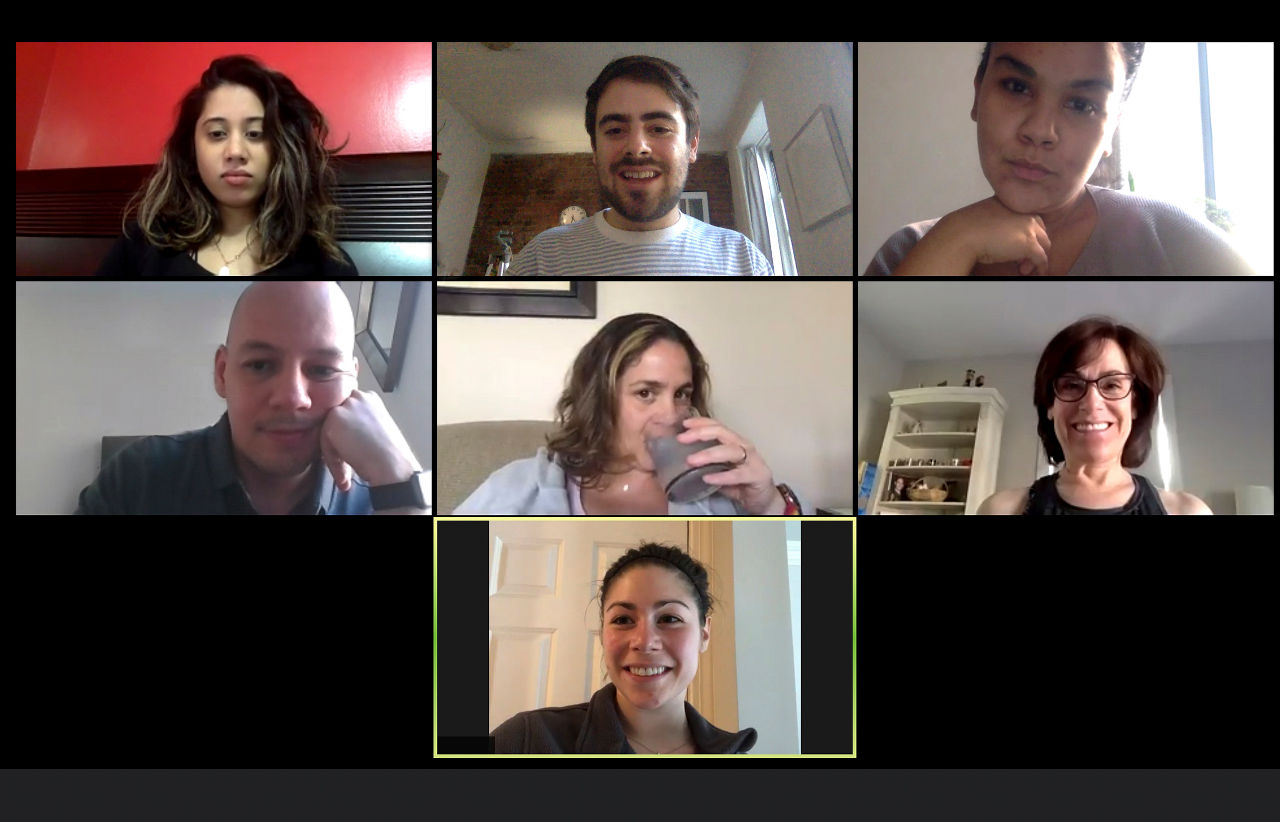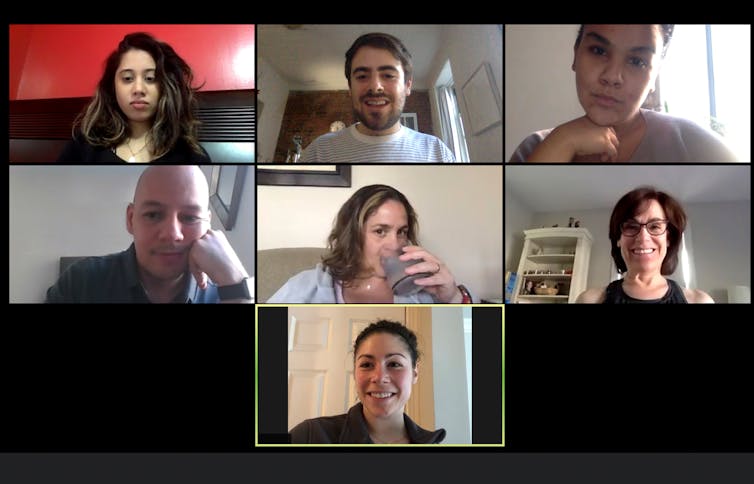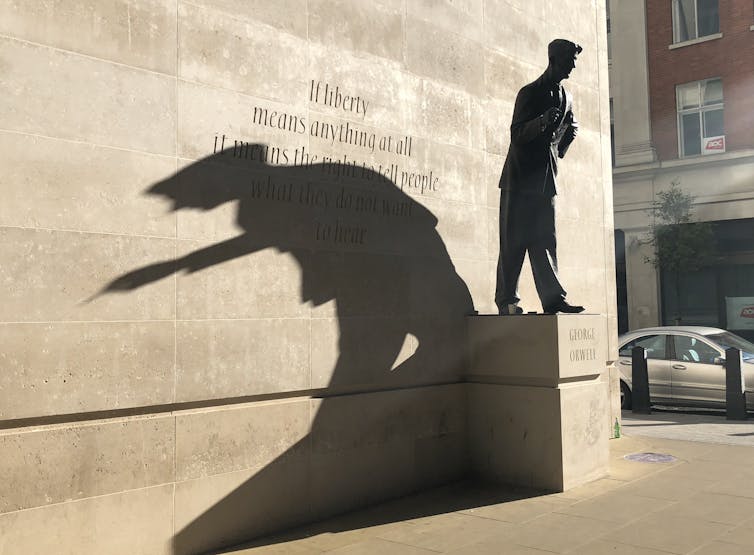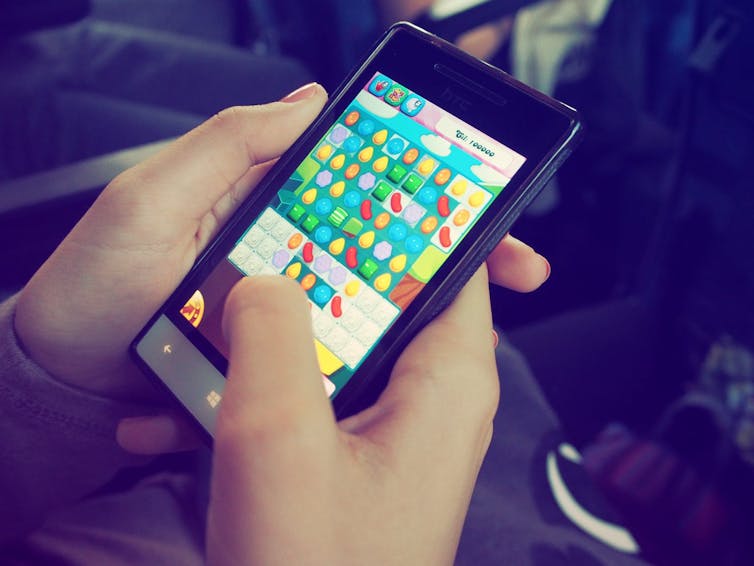Debate: Smile, you're being watched!
In 2011, former CNIL president Alex Türk announced the end of the concept of privacy by 2020. Have we reached that stage with the "StopCovid" application?
Florence Rodhain, University of Montpellier

Today's debate and vote in the French National Assembly has aroused the ire of some five hundred computer security experts and civil liberties activists, who are warning of the possible abuses of such technology.
But beyond the use of such tools, it's the acceptability of generalized population control that's at stake. Will history remember Covid-19 as the moment when citizens massively renounced their civil rights for health reasons?
Two levers seem to be used jointly to put pressure on the population: fear (Big Brother) and entertainment (Big Mother), since in psychoanalytic theory, the father or big brother is the one who enforces the Law, while the mother is the one who looks after in the broadest sense of the term (food), but is also the one who distracts.
Towards generalized surveillance
In a way, data surveillance is already widespread. Who can still believe that our conversations remain in the private domain, whatever the medium used and whatever the protections invoked?
Containment has seen a massive download of videoconferencing applications such as Zoom and Houseparty. Downloaded millions of times, Zoom is now one of the world's most downloaded applications. On March 22, 2020 alone, Zoom was downloaded more than 600,000 times. By March 25, 2020, in France and dozens of other countries, Zoom was the most downloaded free smartphone application. While Zoom had 10 million users in 2019, it had 200 million by March 2020.

Shutterstock
Zoom is used by many French universities to support online courses and meetings. However, on March 26, 2020, we learned that Zoom had sent data on its users to Facebook, without their consent, even though they were not Facebook users. Moreover, neither Zoom nor Houseparty encrypts conversations. In its privacy policy, Houseparty declares itself to be :
"free to use the content of all communications made via its services, including any ideas, inventions, concepts or techniques" even to "develop, design or sell goods and services".
Suzanne Vergnolle, a doctoral student in law specializing in personal data protection, explains:
"If you're a company, for example, and you plan to exchange secret information, be aware that Houseparty and Zoom can access your conversations."
These technologies are also used by the justice system, which recently approved the use of police drones to monitor confinement. A number of French cities are now testing facial recognition for security reasons, with Nice in the vanguard of experimentation.
Applying "sousveillance
How can we force people to accept such measures, or at least not to contest them? It's a question of encouraging voluntary submission.
Instead of surveillance, we're talking about the principle of "sousveillance", where the individual is no longer even over-watched, but rather under-watched by his or her digital traces, in a discreet, immaterial and omnipresent way. In 1984published in 1949, Orwell does not explain how Big Brother came to power, nor does he shed light on the emergence of this society, but describes it in detail; and in many respects, we have already surpassed some of its surveillance features.

Ben Sutherland/Wikimedia, CC BY-NC-ND
So, Orwell didn't predict the hand-held telecom, or voluntary submission, but he did warn about the idea of video surveillance (carried out in his book by the telecom, similar to our contemporary connected screens). Nor had he predicted that every individual would agree to submit to a generalized form of surveillance via a small portable device that would, moreover, have to be paid for.
Big Mother: entertainment to enslave
What Orwell didn't predict was the playful aspect attributed to the famous instrument of population control. If digital tools are so widely accepted, it's because of the playful aspect that distracts and, in so doing, puts its owner to sleep.
This is where we mobilize another equally famous dystopia: Huxley's Brave New World by Huxley, and the famous soma, which suppresses all resistance. In this novel, citizens were strongly encouraged to use soma, which was officially presented to them as a simple medicine, when in fact it was an artificial synthetic drug that could, in high doses, plunge them into a heavenly sleep.
Today's digital tools seem to combine the soma of Brave New World and the telecom of 1984.
Today, a teenager between the ages of 13 and 18 spends 6 hours 40 minutes a day in front of screens for entertainment, apart from any educational or serious use. That's 100 days in a year, or the equivalent of 2.5 school years.
More than 4 out of 10 students feel unable to do without their phone for even a single day.
The digital object has become an extension of oneself, a prosthesis. To be able to continue using its functionalities, practical but also and above all playful, the individual is ready to sacrifice a little freedom, as if in the benefits/risks balance, the benefits brought by the use of the digital tool outweighed the risks of intrusion into private life.

Pexels, CC BY
What's more, digital tools are a real source of distraction, distancing us from knowledge and creating academic difficulties in the classroom. A ground-breaking study we conducted over five years among post-baccalaureate students in France shows that, with the iPad distributed free of charge by higher education schools, students spend an average of 61 minutes in distractions (Facebook, video games, distracting videos, etc.) during 1.5 hours of class. Only 20% of their use of these tools is related to the course.
Each like immediately releases a dose of dopamine, as can be clearly seen when users are observed under MRI; this corresponds to Huxley's famous soma...
Big Brother: Scare to tame
The term "war" is invoked by national powers to combat Covid-19. Is this a coincidence? War would seem to authorize behavior prohibited in peacetime.
Any time of "war" is a time of risk for individual liberties: it's a time of uncoordinated decisions, a time of exceptions. But when it comes to digital surveillance, the exception quickly becomes the rule. This has been the case since September 11, 2001.
The latest example in France: the state of emergency, an exceptional and normally short-lived measure dating back to 1955, introduced during François Hollande's presidency on the evening of the November 13, 2015 attacks, was regularly extended until President Macron turned this exceptional law into an organic law. This new law contains several new electronic surveillance provisions, for example suspects may be required to provide all their identifiers, passwords, etc.
From November1, 2017, France officially emerged from two years of a state of emergency (an all-time record) only to find itself under the thumb of the anti-terrorism law. This is denounced as "liberticide" by its opponents, and criticized by UN experts.
However, the register of fear was well received by the public: 57% of French people supported the bill, although 62% felt that the law would "tend to deteriorate their freedoms".
Already, in the 2011 White Paper on Public Safety, the Ministry of the Interior highlights the likely resistance of the population to new technologies, which may be considered intrusive. On page 180, for example, it states:
"[...] the use of nanotechnologies combined with geolocation is likely to raise concerns about the protection of individual liberties".
The publication reminds us that :
"[...] the importance of the perception of "threat" (whether for terrorist or commercial purposes) is likely to contribute to a more favorable perception of society in terms of the use of new technologies [...]".
Voluntary servitude
Fear of terrorism, fear of disease: this feeling is nurtured by carefully chosen uncertainties and continuous information, even scattered throughout popular entertainment. Proof of this is the success of old zombie Z series and other survivalist productions.
Entertainment, like fear, enables a form of voluntary servitude that also relies on the pleasure of exhibitionist narcissism authorized by social networks.
Benjamin Franklin is credited with saying, "If you're willing to sacrifice a little freedom to feel safe, you deserve neither".
To which we might add: "If you're willing to sacrifice a little freedom for a little entertainment, you deserve neither."![]()
Florence Rodhain, HDR Senior Lecturer in Information Systems, University of Montpellier
This article is republished from The Conversation under a Creative Commons license. Read theoriginal article.